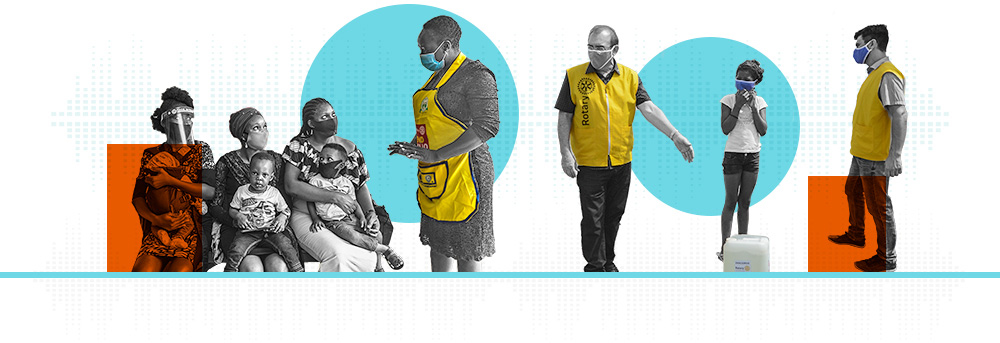
Participants in the Peace Fellows Retreat represented nine nationalities who had worked in more than 100 countries.
By Mayer Ngomesia, 2006-07 Rotary Peace Fellow, Duke University and University of North Carolina at Chapel Hill, USA
After a two-hour drive from the hustle and bustle of Kathmandu along a winding road, 10 Rotary Peace Fellows and I from around the world gathered in the village of Nagarkot, nestled in the Kathmandu Valley at the foothills of the Himalayas for the third Rotary Peace Fellow Leadership Retreat. It was a rare opportunity to step back and reflect on the difficult realities and high-stress environment of our peace work, and to ponder, why the work we do matters.
Made possible by a generous donation from The Benter Foundation, the retreat was both simple and complex. Jenn Weidman and Charlie Allen (Chulalongkorn Class of 2010) from Space Bangkok, an organization working to promote resilience and innovation, facilitated the retreat. On one level, it was a straightforward opportunity to ponder the uncertainties of our field and build our resiliency. Yet, on another, the complicated nature of our work, and the diversity of our perspectives, added a rich complexity to the event.
From cooking to jazz
Collectively, we represented nine nationalities who have lived and worked in over 100 countries. We currently serve on the ground in some of the most intractable situations including ongoing conflicts from Afghanistan to South Sudan or post-conflict Columbia. We manage socioeconomic development and political affairs initiatives across the world, from Laos to Ethiopia. Our stories are even more multi-layered, considering that our experiences include swimming across a Norwegian fjord, performing as a jazz musician, earning respect as a traditional Thai martial artist, and earning national acclaim as a cooking guru.
Like most retreats, various tools were used to evoke reflection. As people who are by nature skeptical to any formulaic assertions about our work, it could not be taken for granted that the haikus, wood carving, exercise, poetry, meditation, hiking, introspections, etc., would create their intended purpose. Yet Space Bangkok, the retreat facilitators, made it work. The complex mix of experiences amplified the point that working for peace is indeed multidimensional. This is central to the Rotary Peace Fellowship, which uniquely forges multifaceted, global clusters of Peace Fellows.
Inevitably though, the question that arises is: Why does this even matter? Turns out, that is maybe the simplest part of all. Peace does matter. To you, me, and especially to those for who it matters most. Sometimes, creating the space to ponder our complicated role in it all is one of the most important things we can do.
Learn more about Rotary Peace Fellowships

I hope the Rotary Peace Fellows had fruitful time in Nepal.
LikeLike
This is wonderful news. But i am also surprised that our District 3292 even don’t know about this visit. This would be good If local Rotarian, club or district also inform.
As I am unknown that how this kinds of Peace Fellows work.
Rtn Advocate Manoj Kumar Kandel
Chair, Children At Risk sub-committee, 2018-19
Rotary International District 3292 Nepal Bhutan
LikeLike
Can this event be streamed so the rest of us can capture the direction of the program
Bob Blum
PDG
5430
LikeLike
It is a great news that Rotary Peace Fellows visited Nepal for Rotary Peace Fellows Leadership Retreat. In the news it is not clear when this took place. In future will it be possible to share such program, if it takes place in Nepal, with us Rotarians. We here at RID 3292 will be more than happy to meet and support at the local level. Thanks
Rtn. Jitendra B Rajbhandary
Chair, District Rotary Foundation Committee, 2016-2019
Rotary International District 3292 Nepal-Bhutan
LikeLike